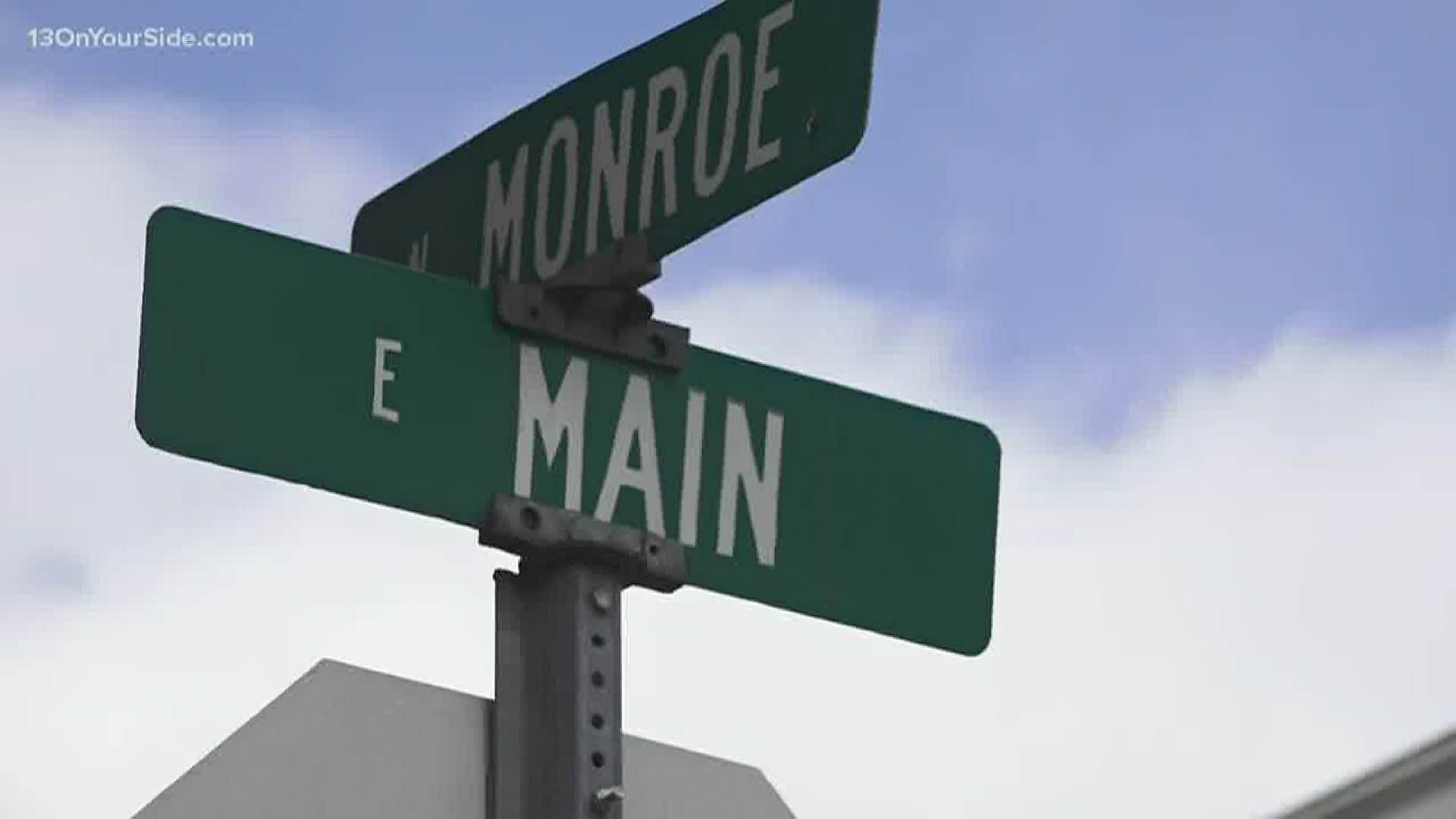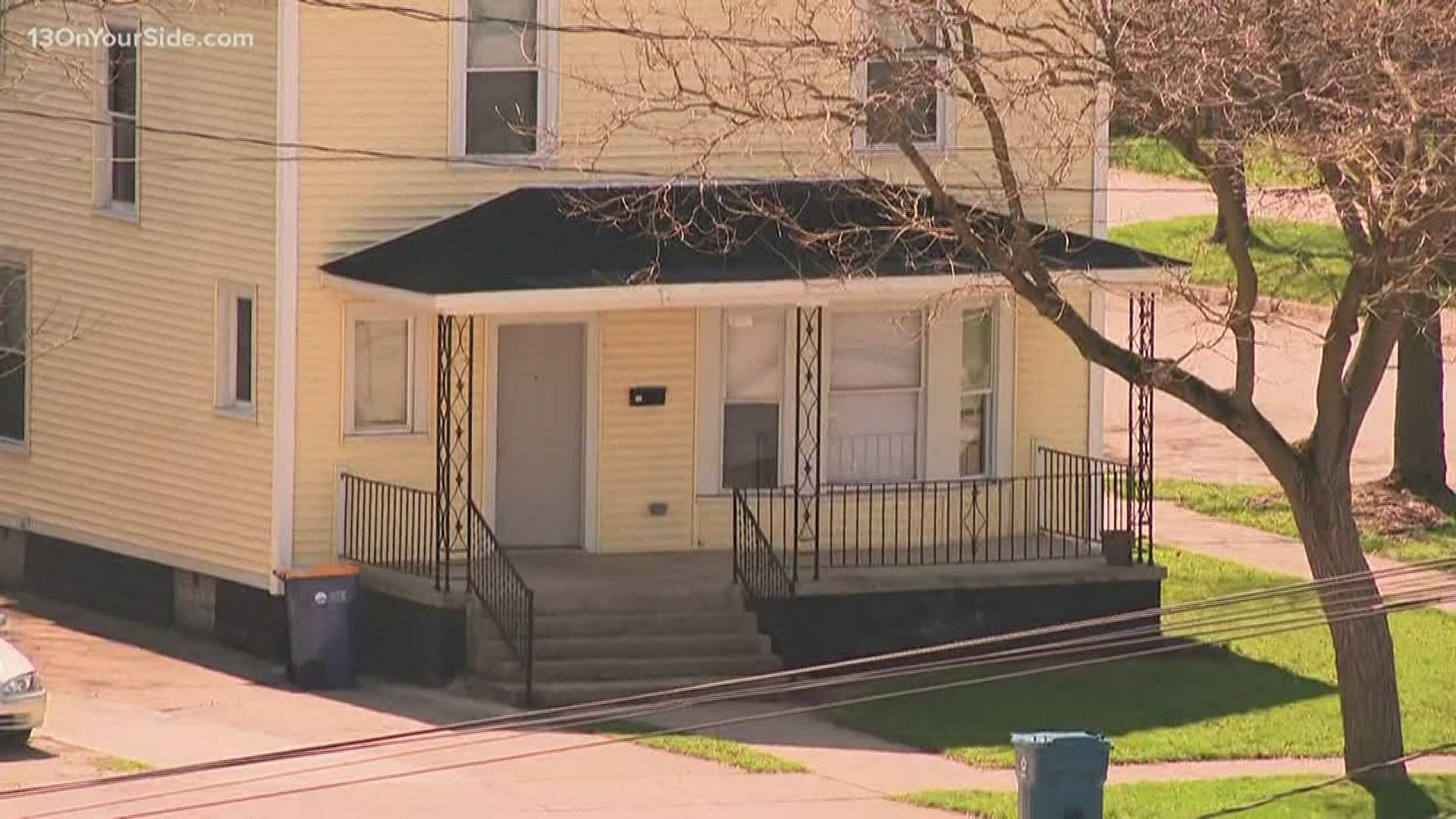LOWELL, Mich. — Small business owners are spending their time finding any way to stay afloat as their doors stay shut amid a growing COVID-19 case count in Michigan.
"My attitude is generally positive, to a large degree that's due to the loan officer at my bank," said Cliff Yankovich, the owner of a fine jewelry shop.
Yankovich and his wife, Julie DeVo, have owned Chemira Design for 18 years. It's one of the many small businesses that line Main Street in Lowell. But Yankovich fears his positive outlook isn't something his neighboring businesses can share in.
"A lot of them had trouble getting in touch with their banks, hearing back from their banks," Yankovich said.
Yankovich was approved for a Payment Protection Program loan through the U.S. Small Business Administration, the money will pay his salary for the next two months.
On Thursday morning, the SBA said the funds for those loans ran out as thousands more small business owners awaited approval. Yankovich said he will be contacting his representatives to ask for them to allocate more funds.
“We need all the help we can get," Yankovich said. "If you didn’t get your application in on time let them know that. Let them know we need more help. I believe that is what government is supposed to do."
Even with the loan, the costs still amount for small businesses between things like rent, utilities and inventory despite their doors being closed.
"You're paying your staff that is still working, for the website, the inventory still coming in that I wasn't able to cancel," said Nikki Gillette, who owns Lee and Birch. "I am still paying all those expenses."
Gillette, who closed her stores out of caution before the statewide mandate, says she's tried to use this time to learn new ways of doing her business, she's pushed online sales and hosted virtual fashion shows. But, it's hard to keep the pressure from mounting with four different retail shops and nearly 30 employees, all but handful are still currently working.
Gillette found out on Thursday afternoon that she was also approved for the PPP loan. She credits this to her bank, as well. Both Gillette and Yankovich said the process was difficult as the application changed during the process.
"If I had done this 13 years ago when I started I would have been lost. I wouldn't have known where to start. I feel for the even smaller businesses," Gillette said.
Gillette said she's unsure how the loan will help her company at this point. The loan is meant to be used 75% on payroll and 25% on things like debt interest, rent and utilities, but what she did not realize was that this needed to be used within the two month period to be forgiven.
"Once you close and get the money your eight week forgiveness period starts, well, we are mandated to be closed right now," Gillette said. "So, I am expected to hire back my whole staff and pay them while we can't work... and they can make more on unemployment."
Gillette said she had hoped the eight weeks would be from when her businesses are able to open up again.
"I think a lot of people were in my boat because you rushed to get the application in because it's a forgivable loan here to help small businesses, but we didn't really know the logistics," Gillette said.
"It's all really confusing."
More stories on 13 ON YOUR SIDE:
RELATED VIDEO:
► Emma Nicolas is a multimedia journalist. Have a news tip or question for Emma? Get in touch by email, Facebook or Twitter.
Make it easy to keep up to date with more stories like this. Download the 13 ON YOUR SIDE app now.


